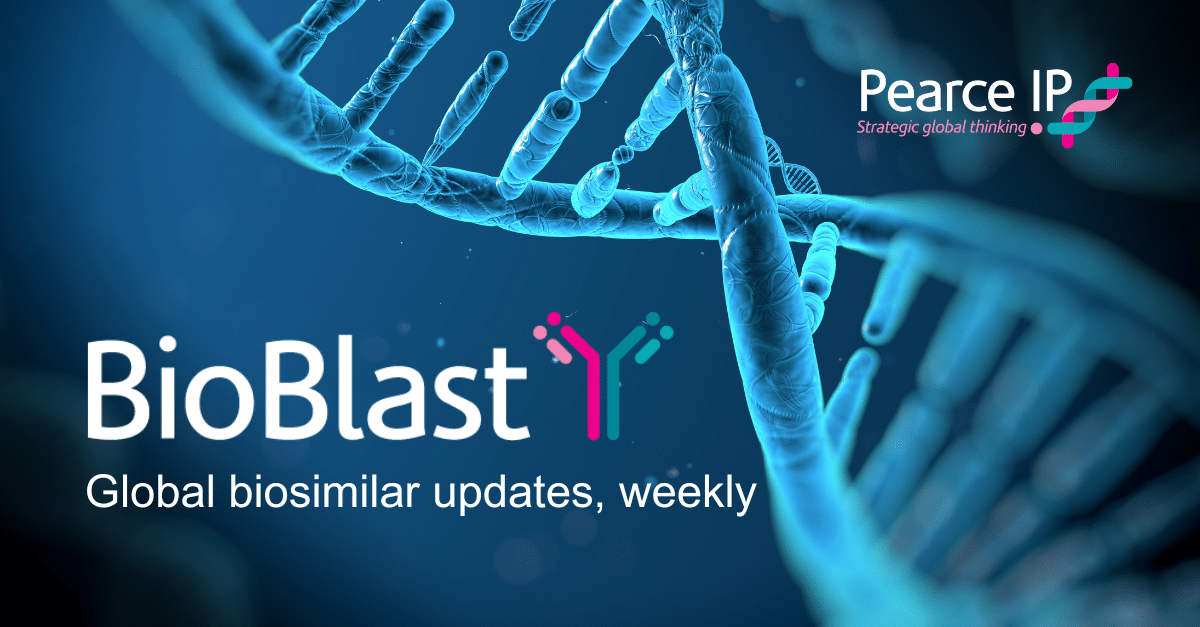Regeneron announced that the FDA approved its 8mg Eylea® (aflibercept) to treat Wet Age-related Macular Degeneration (wAMD), Diabetic Macular Edema (DME) and Diabetic Retinopathy (DR). The 8mg dose is the only treatment approved in wAMD and DME for immediate dosing at 8-week and up to 16-week intervals following three initial monthly doses.
On 10 August 2023, Regeneron announced the results of two-year (96 week) data from its PULSAR trials investigating aflibercept 8mg in wet age-related macular degeneration. In June 2023 Regeneron announced that the FDA had issued a Complete Response Letter (CRL) in relation to the Regeneron BLA for aflibercept 8 mg.
Novartis issued an invitation to an Extraordinary General Meeting (EGM) of Novartis shareholders scheduled for 15 September 2023 to vote on the approach to the proposed spin-off of Sandoz, which includes the planned spin-off effective date of 4 October 2023.
On 18 July 2023, Novartis’ board unanimously endorsed a Q4/23 Sandoz spin-off.
Regeneron announced that the FDA approved its Veopoz® (pozelimab-bbfg) to treat adult and paediatric patients over one year old with CHAPLE disease, also known as CD55-deficient protein-losing enteropathy. CHAPLE is an extremely rare, life-threatening hereditary immune disease driven by an overactivation of the complement system, and less than 10 people in the US have the disease. Veopoz® is a fully human monoclonal antibody designed to block the activity of complement factor C5.
On the same date, 18 August 2023, Regeneron announced that its 8mg Eylea® (aflibercept) was approved by the FDA to treat wAMD, DME and DR.
The British Generics and Biosimilars Associations (BGMA) has released a report finding that the NHS is projected to lose out on approximately £100M in savings per year by 2028 due to reduced biosimilar competition on the 85 biologics which are due to lose patent exclusivity in the next five years.
The figures were calculated by reference to the UK’s voluntary scheme for branded medicines pricing and access (VPAS) scheme, an agreement between the Department of Health and Social Care (DHSC), NHS England and the Association of the British Pharmaceutical Industry (ABPI). VPAS sets a 2% per annum cap on the total allowed sales value of branded medicines to the NHS, and sales above that cap are repaid to DHSC through a rebate system. Biosimilars also fall under this scheme.
Currently members of VPAS currently pay back 26.5% of their medicine sales, which is calculated so that the NHS’ net branded medicines sales increase only to that 2% rate per year.
The BGMA report states that the rising VPAS rate is threatening the launch of new biosimilars, as many manufacturers are not able to absorb the cost of competition as well as the VPAS rebate, ultimately leading to companies prioritising other markets. The research shows that if on average one company is deterred from entering a biosimilar market where molecule exclusivity has been lost between 2023 and 2028, the NHS is projected to lose out on around £100M in savings per year by 2028. If two entrants were lost, the figure increases to £250M.
VPAS is in place until 31 December 2023, and negotiations for the next five years are ongoing. The proposed review of the 2023 scheme to control the cost of branded health service medicines consultation will run until 10 October 2023, and responses can be submitted at the DHSC website.
Sandoz published the results from MYLIGHT Ph III trials of its biosimilar aflibercept in patients with wet macular degeneration. Sandoz reported that the study met its primary efficacy endpoint and showed no clinically meaningful differences to Regeneron’s Eylea®. Sandoz commenced the MYLIGHT trials in May 2021 and expects to file for regulatory approval for its biosimilar aflibercept in the EU and US in the coming months.
On 18 August 2023, Novartis issued an invitation to an Extraordinary General Meeting (EGM) of Novartis shareholders on 15 September 2023 to vote on the approach to the proposed spin-off of Sandoz.
Zumutor Biologics announced that FDA has granted its Investigational New Drug (IND) application for ZM008 (IgG1 monoclonal antibody) to initiate a phase I clinical study for the treatment of multiple solid cancers. The FDA approved the use of a staggered parallel clinical design for the combination of ZM008 and pembrolizumab which could benefit a wider range of patients whose immune response could be boosted with ZM008.
The USPTO Patent Trial and Appeal Board has terminated Samsung Bioepis’ Inter Partes Review (IPR) challenging Janssen’s US patent 10,961,307 relating to Stelara® (ustekinumab). The Board’s decision follows Samsung and Janssen’s joint motion, dated 3 August 2023, stating that parties have resolved the dispute and request termination. The motion states that the parties have entered into a confidential settlement to resolve all present disputes and to avoid any additional disputes regarding the patent.
Samsung filed the IPR on 21 June 2023, arguing all claims of the patent are invalid, citing (amongst other things) a Janssen clinical overview summary for a phase III clinical trial of ustekinumab.
Samsung also filed a notice of opposition to the grant of an Australian counterpart, AU application no 2019346134, on 12 July 2023. Law firm Reddie & Grose filed a post-grant notice of opposition (presumed to be on behalf of an unnamed client) to the European counterpart, EP patent no 3883606, on 27 July 2023.
Regeneron filed an unopposed motion to terminate IPR2023-00620 after disclaiming all claims of the US process patent no 10,406,226. Celltrion filed the IPR in February 2023, and it had not yet been instituted by the PTAB. All claims of the ‘226 patent relate to a method of making a VEGF antagonist fusion protein involving expressing the fusion protein in CHO, purifying the fusion proteins such that a defined percentage is not an aggregate.
The results of Celltrion’s Ph III trials of CT-P42 were reported on 3 April 2023. CT-P42 met secondary endpoints of efficacy, safety, and immunogenicity when compared with Regeneron’s Eyela®. On 30 June 2023, Celltrion filed an NDA for CT-P42 with the FDA, and announced that it intends to file an ABLA in at least the US and Europe later in 2023.

Naomi Pearce
CEO, Executive Lawyer (AU, NZ), Patent & Trade Mark Attorney (AU, NZ)
Naomi is the founder of Pearce IP, and is one of Australia’s leading IP practitioners. Naomi is a market leading, strategic, commercially astute, patent lawyer, patent attorney and trade mark attorney, with over 25 years’ experience, and a background in molecular biology/biochemistry. Ranked in virtually every notable legal directory, highly regarded by peers and clients, with a background in molecular biology, Naomi is renown for her successful and elegant IP/legal strategies.
Among other awards, Naomi is ranked in Chambers, IAM Patent 1000, IAM Strategy 300, is a MIP “Patent Star”, and is recognised as a WIPR Leader for patents and trade marks. Naomi is the 2023 Lawyers Weekly “IP Partner of the Year”, the 2022 Lexology client choice award recipient for Life Sciences, the 2022 Asia Pacific Women in Business Law “Patent Lawyer of the Year” and the 2021 Lawyers Weekly Women in Law SME “Partner of the Year”. Naomi is the founder of Pearce IP, which commenced in 2017 and won 2021 “IP Team of the Year” at the Australian Law Awards.

Sian Hope
Associate Lawyer

